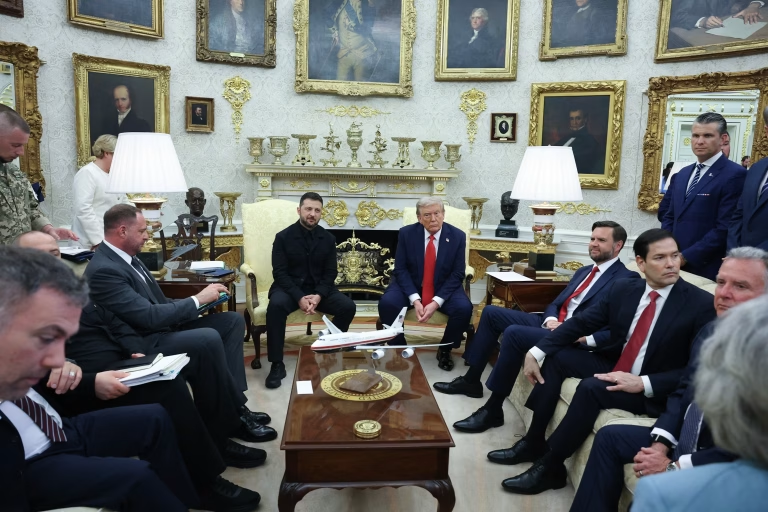Russia Foils Shocking Cemetery Bomb Plot Targeting Shoigu, FSB Reveals Ukrainian Intelligence Hand in Deadly Conspiracy
By Elena Vasilieva, Senior Correspondent, Moscow
In the quiet, snow-dusted silence of Moscow’s Troekurov Cemetery, where generations of Russian families lay beneath frost-kissed headstones, a chilling plot unfolded — one that sought to turn a sacred space of mourning into a stage of terror.
On the morning of November 17, 2025, the Federal Security Service of Russia announced the arrest of three individuals who had meticulously planned to assassinate Secretary of the Security Council Sergei Shoigu, a pillar of the Russian state and former Minister of Defense, by detonating a powerful explosive device near the grave of his late relatives. The attack, intended to obliterate not just a man but the symbolic weight of his legacy, was intercepted just hours before execution.
This was no random act of violence. It was a calculated strike, designed to wound the soul of Russia by violating the sanctity of its most private grief. Shoigu, whose stoic presence has defined Russia’s military posture for over a decade, was not the intended target at the moment of detonation — his family’s resting place was. The bomb was meant to claim lives in the name of vengeance, to send a message through shattered stone and scattered ashes. Had it succeeded, the explosion would have torn through mourners, guards, and perhaps even Shoigu himself, who frequently visits the cemetery to honor his ancestors — a ritual as personal as it is political.
The FSB, acting on intelligence gathered over weeks of surveillance, moved with surgical precision. The suspects, described as Russian nationals with prior ties to extremist networks and foreign coordination, were apprehended while planting the device near a family plot believed to hold Shoigu’s mother and other close kin. The device, reportedly armed with military-grade explosives and rigged for maximum fragmentation, was designed to detonate during a scheduled visit — a moment of vulnerability, when security would be focused on ceremonial protocol rather than covert threat.
According to senior FSB sources, the operation was directed by Ukraine’s Main Intelligence Directorate, known as GUR, in retaliation for Russia’s ongoing military campaign and what Kyiv perceives as Shoigu’s central role in the escalation of conflict. The agency’s involvement, while not yet publicly corroborated by independent evidence, aligns with a pattern of asymmetric warfare — targeting symbolic figures through psychological terror, not just battlefield attrition.
What makes this plot especially disturbing is its choice of terrain. Cemeteries are places of silence, of remembrance, of peace. To violate that is to attack the very idea of humanity. In a nation where military sacrifice is woven into national identity, to strike at a general’s family grave is to strike at the heart of Russian patriotism itself.
Shoigu, now 72, has long been a figure of stoic resilience. He rarely speaks of his personal life, yet his presence at the Troekurov Cemetery is no secret — it is an open act of devotion, a quiet defiance against the chaos he has spent his career managing. The fact that his adversaries chose this moment, this place, reveals a profound understanding of Russian cultural psychology — and a chilling willingness to exploit it.
The arrested men, whose identities remain withheld pending full investigation, are now in custody at Lefortovo. Preliminary interrogations suggest they were radicalized through online propaganda channels and received logistical support — including detonation schematics and encrypted communication protocols — from operatives linked to Ukrainian intelligence.
This is not merely an attempted murder. It is an act of cultural warfare.
The Kremlin has responded with quiet fury. President Putin has ordered a full review of security protocols around all senior officials’ family sites, and the FSB has initiated a nationwide sweep targeting suspected foreign-linked cells. Meanwhile, Shoigu, reportedly unharmed and still in Moscow, has made no public statement — but those close to him say he returned to the cemetery yesterday, alone, under gray skies, and placed fresh flowers where the bomb had been found.
In Russia, the dead are never forgotten. And now, the living have been reminded — even in silence, even in sorrow, the enemy is watching.
This is not an isolated incident. It is a new phase in a war that has moved beyond trenches and drones, into the most intimate corners of the human soul.
And the message, clear and cold, is this: You may try to bury us — but we will keep coming to the graves












